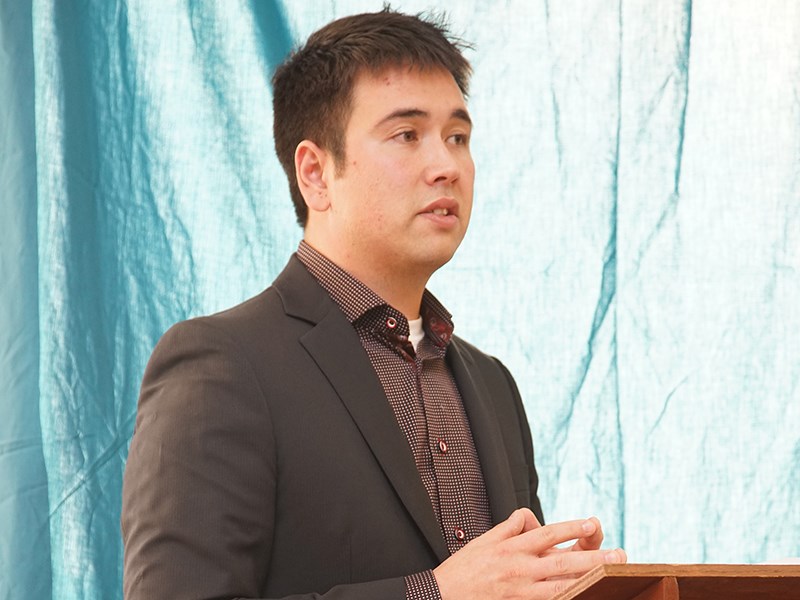City of Powell River Council will consider a reduction of the city’s flat tax to a rate of $50 by 2022.
At the Thursday, November 28, finance committee meeting, chief financial officer (CFO) Adam Langenmaier introduced an initiative to reduce the city flat tax from the current $250 down to $50. The flat tax is an assessment all homeowners pay, regardless of the assessed values of their residences. On the remainder of the assessment, homeowners pay a variable tax rate based on the value of their homes.
Langenmaier said that last year he brought a report to council regarding flat tax, recommending reducing it from $335 to $250 for 2019, which council adopted. He said the current proposal before the finance committee is a schedule to continue to reduce the flat tax over the next several years.
In a report to the finance committee, Langenmaier said by adopting a revenue-neutral flat tax reduction strategy and schedule, the city can reduce its reliance on flat tax and reduce regressive effects of flat tax on the community. He said Powell River is one of only five municipalities remaining in BC that still levy a flat tax.
“The proposed reduction strategy is not intended to remove the flat tax; it is only intended to reduce the flat tax to a nominal amount,” stated Langenmaier.
Under Langenmaier’s proposal, flat tax would be reduced to $180 in 2020, $115 in 2021 and $50 in 2022 and beyond.
Langenmaier told the committee that in 2018, on an average city tax of nearly $1,700, the flat tax was 19.7 per cent of that total. In 2022, the average tax is forecast to be $1988.08 and the tax represented by flat tax would be 2.5 per cent.
“This allows the city to move away from its dependence on flat tax and shift that to the variable rate, which is more in tune with the rest of the province on how property taxes are administered,” said Langenmaier.
The average house value in 2019 in Powell River was $345,000, according to Langenmaier. By undertaking a revenue neutral reduction strategy, the city would take the total revenue it would have brought in under flat tax and adjust the variable amount the city levies.
“At the end of the day, the average house of $345,000 will see a decrease of property tax of $1.30,” said Langenmaier.
The lower-valued homes have a bigger decrease in the tax bills, he said. A home assessed at $200,000 would see a net savings of $30.18. Higher value homes would pick up more of the cost, according to the CFO.
House values exceeding $550,000 only represent four per cent of the population and 60 per cent of homes in Powell River are valued at less than $350,000, said Langenmaier.
“The corporate officer and I went over what the options are and coming from the finance committee meeting, this will be a component of the future financial plan,” said Langenmaier. “If there is unanimous consent from this committee, the request doesn’t have to go any further. If there needs to be further discussion and a vote, it should be referred to city council.”
Councillor CaroleAnn Leishman, along with mayor Dave Formosa, first suggested the matter go to council, and then she said “or unanimous consent,” but councillor Jim Palm said there was not unanimous consent.
The committee carried a motion to send the matter to council, with Palm opposed. Council will discuss the flat tax at its December 19 meeting.
Resident Paul McMahon, in attendance at the finance committee meeting, said after the meeting that council has persistently, quietly and methodically reached the final step to eliminate the city’s flat tax.
McMahon said the public backlash at the last publicly held five-year financial plan review in 2016 caused council to modify the then proposed aggressive reduction of the flat tax.
He added that it is a surprise to him that a council which promotes openness and transparency would attempt to give unanimous consent, thus avoiding the need to raise the issue at the next council meeting.
“Councillor Palm blocked councillor Leishman’s attempt to quietly slip this motion through the backdoor,” said McMahon. “The intent of the flat tax is to charge a minimum amount for very low valued/assessed properties to help defray the city’s cost to install and maintain essential services. Most of these low-assessed properties are owned by individuals who do not live in the units/home but rather own it as an investment.
“Maybe the flat tax should only be removed if the owner resides at the property.”



